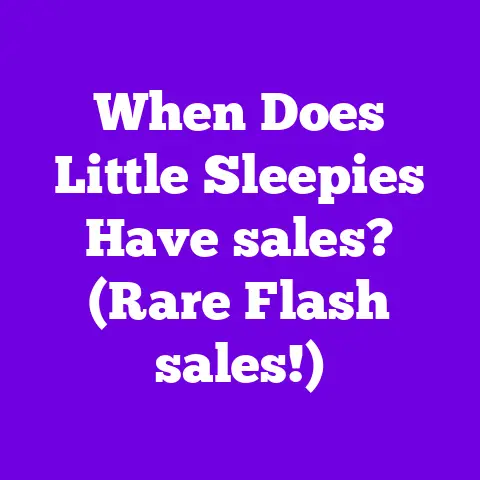Estate sales: Sell Your Home Quickly! (Don’t Miss These Hidden Gems!)
Selling a home is often ranked among life’s most stressful experiences. I’ve seen countless homeowners grapple with the complexities of pricing, staging, and the emotional weight of parting with a cherished family home. The fear of not getting the deserved value is a constant worry. According to a 2023 survey by the National Association of Realtors (NAR), 76% of sellers reported experiencing stress during the home-selling process [^1]. The traditional route, with its open houses and constant negotiations, can feel overwhelming.
But what if there was a way to simplify the process, sell your home quickly, and even uncover hidden value you didn’t know you had? Enter the estate sale. It’s not just about selling belongings; it’s about creating an opportunity, attracting buyers, and potentially boosting your overall sale price.
Understanding Estate Sales
So, what exactly is an estate sale? It’s essentially a public sale of the majority of personal property within a home, typically conducted when someone is downsizing, moving, or after the passing of a loved one. Legally, estate sales are governed by local and state regulations, which can vary significantly. For instance, some states require permits for conducting sales, while others have specific rules regarding advertising and pricing.
There are two primary types of estate sales I’ve encountered:
- Probate Estate Sales: These are conducted when someone has passed away, and their estate is being settled through probate court. The sale is often overseen by an executor or administrator appointed by the court.
- Voluntary Estate Sales: These occur when homeowners choose to downsize, relocate, or simply declutter. They have more control over the process and timeline.
A Brief History of Estate Sales
Estate sales have a surprisingly long history, evolving from private auctions among the wealthy to more public affairs. In the early 20th century, they were often advertised through word-of-mouth or small newspaper ads. The rise of online platforms like EstateSales.net and social media has revolutionized the industry, making it easier for buyers and sellers to connect.
The Role of Estate Sale Companies
Most homeowners, including myself, find the prospect of organizing an estate sale daunting. That’s where estate sale companies come in. These companies handle everything from staging and pricing to advertising and managing the sale itself. They typically work on a commission basis, taking a percentage of the total sales.
Estate Sales vs. Garage Sales vs. Auctions
It’s important to differentiate estate sales from garage sales and auctions:
| Feature | Estate Sale | Garage Sale | Auction |
|---|---|---|---|
| Scope | Entire contents of a home, often high-value items | Limited selection, typically lower-value items | Specific items, often rare or collectible |
| Scale | Larger, more organized | Smaller, less organized | Can be large or small, highly structured |
| Pricing | Professionally priced, often negotiable | Bargain prices, often flexible | Competitive bidding, price driven by demand |
| Professionalism | Often managed by professionals | Typically homeowner-run | Managed by professional auctioneers |
The Benefits of Selling Your Home Through an Estate Sale
Why choose an estate sale to sell your home? I’ve seen firsthand how it can offer several advantages:
Speed of Sale
Estate sales can significantly expedite the home-selling process. Instead of waiting months for the right buyer, you can clear out your belongings in a matter of days. This allows you to prepare the property for traditional real estate showings much faster.
Potential for Higher Returns
While it may seem counterintuitive, estate sales can potentially lead to higher returns. The appeal of bundled items – furniture, artwork, collectibles – can attract buyers willing to pay more for the convenience of acquiring a fully furnished home. I’ve seen buyers fall in love with a home because of the unique character and charm its contents exude.
Convenience Factor
Estate sales relieve the burden of staging and open houses. The estate sale company handles the logistics, allowing you to focus on other aspects of the move or sale. This is particularly beneficial for seniors or those with limited time and energy.
Preparing for an Estate Sale
Proper preparation is key to a successful estate sale. Here’s what I recommend:
Sorting and Organizing
Start by sorting through your belongings, deciding what to sell and what to keep. Be realistic about what items are likely to attract buyers. Sentimental value aside, focus on items that are in good condition and have market appeal.
Inventorying and Documenting
Create an inventory of your items, documenting their value. This will help you track sales and ensure you’re getting a fair price. Consider taking photos of valuable items for insurance purposes.
Choosing an Estate Sale Company
Selecting the right estate sale company is crucial. Research companies in your area, read reviews, and interview several candidates. Key questions to ask include:
- What is your commission rate?
- How do you determine pricing?
- How do you advertise the sale?
- Do you have insurance and licenses?
Red flags to watch for include companies that:
- Lack experience or references
- Demand upfront fees
- Seem disinterested in your items
Maximizing Your Sale: Hidden Gems to Highlight
Estate sales are treasure troves waiting to be discovered. Here are some hidden gems that can attract buyers:
Antiques and Collectibles
Antiques and collectibles are always a draw. Buyers look for items in good condition, with provenance or historical significance. Showcase these items prominently, providing information about their history and value.
Unique Home Décor and Furniture
Unique home décor and furniture can significantly increase buyer interest. Think vintage lamps, handcrafted rugs, or statement pieces of furniture. These items add character and charm to a home, making it more appealing to potential buyers.
Personal Stories and Historical Significance
Don’t underestimate the power of personal stories. Sharing anecdotes about the history of an item or its significance to your family can enhance its appeal. People are often drawn to items with a story behind them.
Navigating the Aftermath of an Estate Sale
Once the estate sale concludes, there are still a few things to consider:
Handling Unsold Items
You’ll likely have unsold items after the sale. Consider donating them to charity, recycling them, or disposing of them responsibly. Many estate sale companies offer post-sale cleanout services.
Financial Implications
Estate sales have financial implications. You’ll need to report the income from the sale on your taxes. Consult with a tax professional to understand the specific rules in your area.
Emotional Aspects
Selling a home and parting with belongings can be emotionally challenging. Allow yourself time to grieve and process your feelings. Remember that you’re creating a new chapter in your life.
Conclusion
In 2025, estate sales offer a strategic approach for homeowners looking to sell quickly and efficiently. While selling a home can be daunting, estate sales provide a streamlined, potentially profitable solution that can uncover hidden gems and alleviate your frustrations. Consider this option as a way to achieve your selling goals and embark on a new beginning.
[^1]: National Association of Realtors. (2023). Profile of Home Buyers and Sellers. https://www.nar.realtor/research-and-statistics/research-reports/highlights-from-the-profile-of-home-buyers-and-sellers






